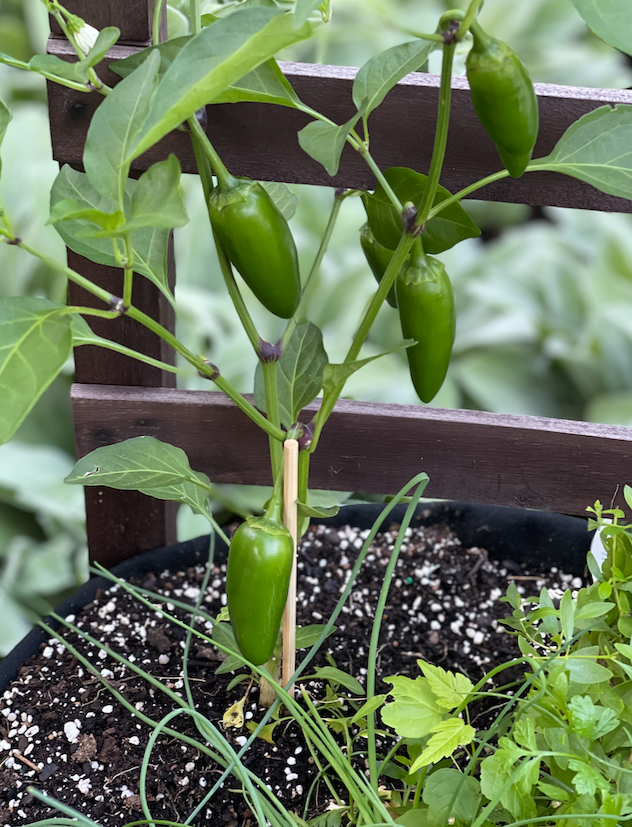Organic Vs. Synthetic Fertilizers: Which Is Best for Supporting Healthy And Balanced Pepper Plants?
In the world of supporting healthy pepper plants, the option between natural and artificial plant foods stands as a crucial choice with far-ranging ramifications. While both alternatives purpose to give important nutrients to support plant development, the nuances of their impact on the dirt, plant health, and the atmosphere spark a dispute that mirrors throughout the horticulture area. Understanding the distinct benefits and possible challenges of each plant food kind is important for pepper farmers seeking to maximize their yields while keeping a lasting and eco-conscious strategy.
Advantages of Organic Plant Foods
Organic fertilizers provide a lasting and environmentally-friendly approach to beneficial pepper plants, offering essential nutrients without the use of artificial chemicals. These natural fertilizers are obtained from organic sources such as compost, manure, bone meal, and algae, advertising soil health and biodiversity. Unlike synthetic fertilizers, organic options release nutrients gradually, making sure a balanced and stable supply for pepper plants to prosper.
One substantial benefit of organic plant foods is their capability to enhance dirt framework and water retention. By improving soil wellness, natural fertilizers advertise beneficial microbial task, which aids in nutrient uptake by pepper plants. In addition, natural plant foods decrease the threat of chemical run-off, protecting water sources from contamination and securing the environment.
Furthermore, natural plant foods add to lasting soil fertility by promoting the development of valuable dirt organisms. These organisms assist damage down raw material, launching nutrients in a kind that is quickly available to pepper plants. best fertilizers for peppers. By fostering a healthy and balanced dirt community, organic fertilizers sustain sustainable pepper growing practices that profit both plants and the setting
Drawbacks of Artificial Fertilizers
Synthetic fertilizers, in comparison to their organic equivalents, present numerous drawbacks when used to nourish pepper plants, affecting both plant health and wellness and environmental sustainability. One major drawback of synthetic plant foods is their propensity to leach nutrients from the dirt swiftly.
Furthermore, the overuse of synthetic plant foods can add to water pollution. Excess fertilizers not soaked up by plants can get rid of right into water bodies, leading to eutrophication, where algae flowers deplete oxygen levels in the water, hurting aquatic life. Furthermore, artificial plant foods are normally obtained from non-renewable sources, such as fossil gas, contributing to carbon exhausts and environmental degradation during their manufacturing.
Nutrient Absorption Comparison
Efficient nutrient absorption plays a critical duty in the overall wellness and growth of pepper plants. When comparing organic and synthetic fertilizers in regards to nutrient absorption, organic plant foods have the advantage of providing an extra balanced and slow-release source of nutrients (best fertilizers for peppers). Organic fertilizers contain a range of macro and trace elements that are not just valuable for the plants yet additionally promote healthy and balanced soil microbial activity, which aids in nutrient uptake. On the other hand, synthetic fertilizers often supply a fast launch of nutrients, which can cause leaching and drainage, resulting in lower nutrient absorption prices by the plants.
In addition, organic plant foods improve soil framework and water retention capability, enabling pepper plants to access nutrients a lot more successfully. This enhanced dirt high quality assists in origin advancement, enabling far better nutrient absorption. Synthetic plant foods, although initially enhancing plant growth as a result of great post to read their high nutrient focus, might prevent long-term nutrient absorption by derogatory soil health with time.
Ecological Effect Considerations

On the other hand, synthetic plant foods, although commonly more concentrated and immediately available to plants, can have harmful effects on the environment if not used properly (best fertilizers for peppers). Their manufacturing calls for high power inputs, bring about greenhouse gas discharges and adding to climate adjustment. In addition, the runoff of excess synthetic fertilizers can infect water resources, leading to eutrophication and damaging aquatic ecosystems.
Best Plant Food Practices for Peppers
When feeding pepper plants, enhancing nutrient uptake and reducing environmental effect are vital factors to consider. To attain this, it is crucial to follow finest fertilizer techniques tailored to the details needs of pepper plants. One vital method is to carry out a soil test before applying any plant foods. This test can identify the pH degree of the dirt and determine any kind of nutrient shortages, leading you in selecting one of the most ideal fertilizer formula.
An additional vital method is to feed pepper plants at the correct time. Normally, peppers gain from receiving fertilizer at planting and after that again when they begin to blossom. Over-fertilizing can cause vitamins and mineral discrepancies and damage the plants, so it is important to follow advised application prices.
In addition, selecting a well balanced fertilizer with an NPK proportion that fits pepper plants' requirements is fundamental. Organic fertilizers, such as compost or manure, can be superb choices as they release nutrients slowly and improve dirt structure in time. However, synthetic plant foods can give a quick nutrient boost helpful resources when required. Ultimately, incorporating synthetic and natural fertilizers carefully can assist nurture healthy and balanced pepper plants while decreasing ecological impact.
Conclusion

Organic fertilizers supply a lasting and environmentally-friendly strategy to nourishing pepper plants, offering crucial nutrients without the use of synthetic chemicals. Unlike synthetic fertilizers, natural options release nutrients slowly, making sure a stable and balanced supply for pepper plants to thrive.
Synthetic fertilizers, in comparison to their natural counterparts, present numerous downsides when made use of to nurture pepper plants, affecting both plant health and ecological sustainability. When contrasting natural and synthetic plant foods in terms of nutrient absorption, organic plant foods have the benefit of supplying an extra well balanced and slow-release source of nutrients.Furthermore, organic plant foods boost dirt structure and water retention capacity, allowing pepper plants to access nutrients a lot more efficiently.